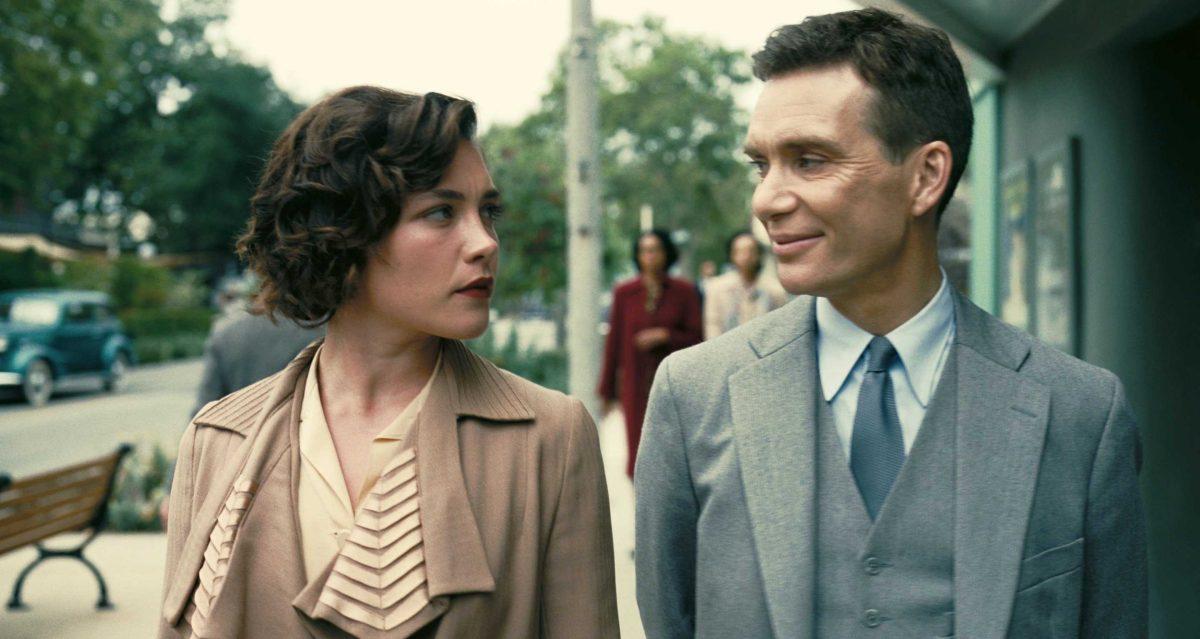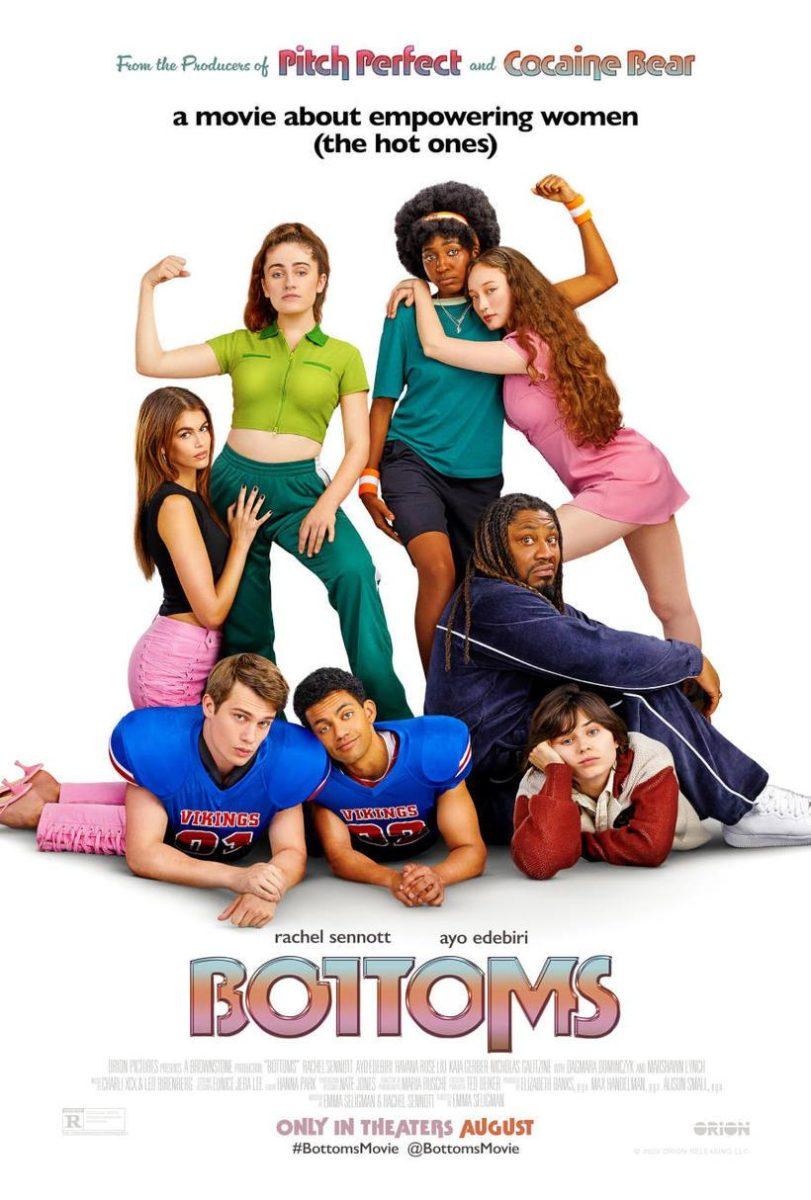Christopher Nolan’s “Oppenheimer” is the best movie of the year and maybe the best of his career.
“Oppenheimer” tells the story of “the father of the atomic bomb,” played by an intense Cillian Murphy, over the course of three hours. Despite the enormous run-time, as well as the enormous weight of the subject matter, the film moves along at a break-neck pace.
The long runtime might turn some people off, but it’s not a slow crawl like some might expect. It’s a whirlwind of events and characters that are all densely packed together, and Nolan throws the audience directly into the fire.
The film features black and white scenes as well as scenes in color, and different timelines. Those in the past (yes, I know the entire film is technically in the past) and those in the present are all intertwined. But unlike most movies, the black and white doesn’t represent the different times the movie takes place, but the different perspectives of the film.
Black and white scenes are told from the perspective of Lewis Strauss, played by an almost unrecognizable Robert Downey Jr., the former chairman of the Atomic Energy Commission, as he tries to be appointed to a position in the president’s cabinet.
Scenes shot in color are from the perspective of Oppenheimer, with Nolan reportedly going as far as to write the screenplay in first person when he wrote Oppenheimer’s scenes. Oppenheimer’s scenes hop between him in a hearing, a witch hunt orchestrated by Strauss meant to revoke Oppenheimer’s security clearance and political influence, and his life leading up to and during the Trinity test.
Oppenheimer’s story starts with him as a young physicist in Europe haunted by visions of “another world.” After getting his Ph. D. in physics, he heads back to the United States in hopes of bringing theoretical physics to America.
At Berkley, he meets Ernest Lawrence, played by Josh Hartnett, who teaches him the importance of practical applications to his theoretical science. He also meets Jean Tatlock, played by Florence Pugh, a communist party member who he has an off and on relationship with. He also meets his future wife, Katherine Puening, played by Emily Blunt.
His ties to the communist party are a common theme throughout the movie though he never actually joins. His brother, friends and romantic partners are all either members or former members.
At Berkley he is approached by General Leslie Groves, played by a fantastic Matt Damon, who recruits him as the head of the Manhattan Project. Oppenheimer assembles his team of scientists and builds a town in Los Alamos, New Mexico for them to do their research at.
The film carries an intense weight throughout, and you can’t help but feel a pit in your stomach as the group of scientists progresses towards their goal. Early on during the project, the scientists discuss the possibility of the bomb triggering a chain reaction that ignites the earth’s atmosphere and ends the world. While this doesn’t literally come to fruition, with Oppenheimer reassuring Groves that the odds of it are “near zero,” the idea that nuclear war will eventually destroy the world just might, and it haunts Oppenheimer.
The celebration after the bomb is eventually built and successfully tested are haunting, for the audience and Oppenheimer. The film doesn’t show footage of the bombs being used on Japan, or even touch on what their impact is too much, but it doesn’t have to. Oppenheimer knows he has ended the world, at least the pre-nuclear world.
Oppenheimer spends the next few years fighting the development of a hydrogen bomb and further nuclear development, perhaps hypocritically. He is accused of egotism and making the bomb about him. It makes sense for him to be haunted by the impacts of his creation, but that doesn’t mean he should garner any pity.
It echoes a point earlier in the film, after he learns that the woman he was having an affair with, Tatlock, dies. His wife finds him crying in the woods, but she doesn’t coddle him. She chastises him for thinking he can earn sympathy for his sins, simply because he is mourning. His pain doesn’t minimize what he has done to others.
Nolan expertly crafts a story of egotism, hubris and humanity and interweaves it with a story of the end of the world. Despite its long runtime, “Oppenheimer” flies forward at a horribly quick pace. It drags a little at the end, and Nolan perhaps indulges in Oppenheimer’s hubris a little too much (the film is called “Oppenheimer” after all), but it’s as entertaining and heartbreaking as they come. You can’t help but feel the enormity of the movie throughout, but it more than justifies its scale.
9/10
Rev Rank: Christopher Nolan’s ‘Oppenheimer’ is the best movie of the year and maybe of his career
By Will Nickel
July 22, 2023
This image released by Universal Pictures shows Florence Pugh as Jean Tetlock, left, and Cillian Murphy as J. Robert Oppenheimer, right, in a scene from “Oppenheimer.”
More to Discover









